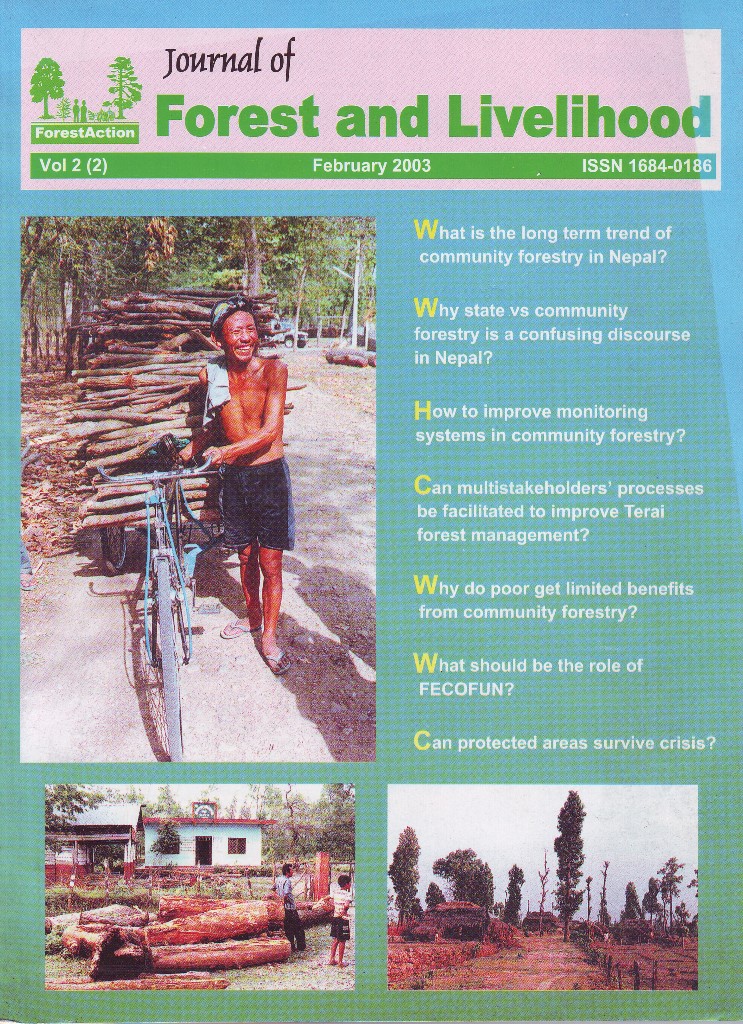District Forest Coordination Committee: An Emerging Multistakeholder Platform for Collaborative Forest Management in Nepal's Terai
DOI:
https://doi.org/10.3126/jfl.v2i2.59723Keywords:
Nepal, Terai, district forest coordination committee, collaboration, social learningAbstract
In line with government policy on decentralization, and recognizing the inadequacies of previous attempts for the management of Terai forests in Nepal, two donor funded programs are supporting localized planning and decision-making for the forest sector. To this end, District Forest Coordination Committees (DFCCs) are being established as permanent, multi-stakeholder forums in 11 Terai districts, involving Forest User Groups, government and non-government agencies, trade and industry, the media and political parties. Based on experiences over the past two years, this paper analyzes the prospects for DFCCs as permanent formal fora for collaboration among all district forest stakeholders. Using theoretical as well as practical insights, conditions that influence the effectiveness of multi-stakeholder platforms are discussed, including issues around legitimacy, representation, linkages between constituents and representatives, and coordination between and within levels. The author contends that the idea of DFCCs has great potential, but to ensure the success, a clear mandate and detailed guidelines are needed.
Downloads
Downloads
Published
How to Cite
Issue
Section
License

This work is licensed under a Creative Commons Attribution-NonCommercial 4.0 International License.
CC-BY-NC: This license allows reusers to distribute, remix, adapt, and build upon the material in any medium or format for noncommercial purposes only, and only so long as attribution is given to the creator.





